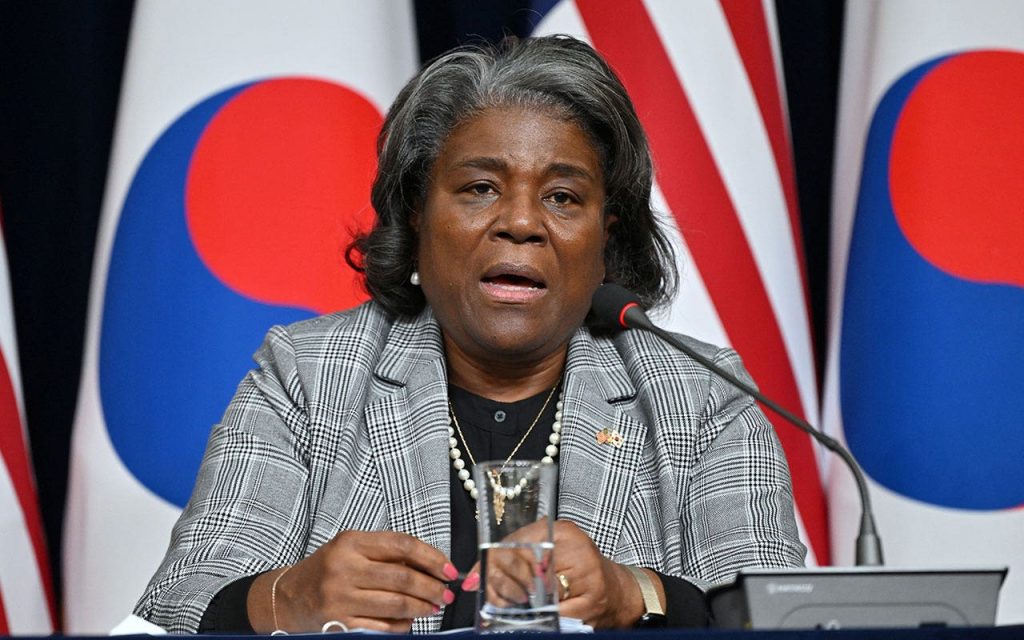U.S. Ambassador to the United Nations Linda Thomas-Greenfield has expressed concerns regarding a U.N. resolution that supports granting full membership to the Palestinian Authority. She stated that the proposal may not necessarily lead to a two-state solution to the Israeli-Palestinian conflict. Thomas-Greenfield emphasized that the United States does not believe that passing a resolution in the Security Council will facilitate progress towards a two-state solution. Despite this, she reiterated President Joe Biden’s support for a two-state solution and ongoing efforts to achieve this goal on the ground.
The Palestinian Authority is expected to push for a vote in the 15-member Security Council on the draft resolution recommending full U.N. membership. Security Council member Algeria has circulated a draft text, but a committee considering the application was unable to reach a unanimous recommendation. Approval for full U.N. membership requires a vote from the Security Council – where the U.S. holds veto power – and support from at least two-thirds of the 193-member General Assembly. Progress towards Palestinian statehood has been stalled since the early 1990s, despite the signing of the Oslo Accords between Israel and the Palestinian Authority.
One of the main obstacles to achieving Palestinian statehood is the expansion of Israeli settlements in the West Bank. Israel’s U.N. Ambassador Gilad Erdan has stated that the Palestinian Authority has not met the necessary criteria for statehood. While the Palestinian Authority, led by President Mahmoud Abbas, has limited self-rule in the West Bank and is a signatory to the Oslo Accords, Hamas took control of the Gaza Strip in 2007, further complicating efforts towards a two-state solution. The United States has reiterated its commitment to supporting a two-state solution, but it remains to be seen how discussions regarding the Palestinian Authority’s full U.N. membership will progress in the Security Council.


